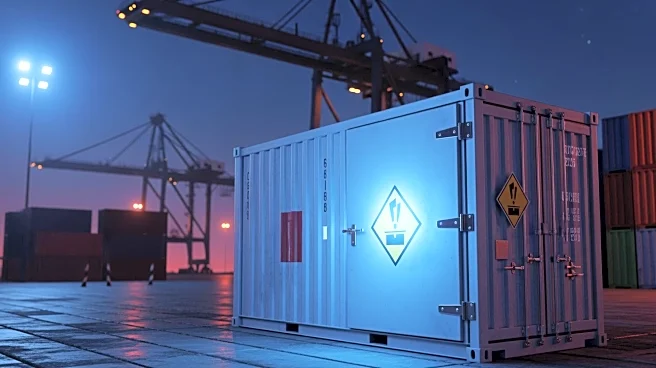What's Happening?
In mid-September, a shipment of zinc dust from the Philippines triggered radiation alarms at Indonesia's Tanjung Priok Port. The Nuclear Energy Supervisory Agency confirmed high radiation levels in nine
out of 14 containers, with the radiation confined to the interior of the boxes. The Philippine Nuclear Research Institute identified the exporter as Zannwann International Trading Corp., a Chinese company operating in the Philippines, which sourced zinc dust from SteelAsia in the Philippines. SteelAsia voluntarily suspended production for testing, and both its and Zannwann's warehouses, along with approximately 100 workers from both companies, are undergoing testing.
Why It's Important?
The incident highlights significant concerns regarding the handling and export of potentially hazardous materials. The return of the radioactive shipment to the Philippines raises questions about regulatory oversight and the safety protocols of companies involved in the production and export of industrial materials. The situation could impact international trade relations and lead to stricter regulations and monitoring of hazardous materials, affecting industries reliant on such exports.
What's Next?
The Philippine Nuclear Research Institute is demanding that SteelAsia take custody of the contaminated containers and arrange for proper disposal. The unnamed ship carrying the containers remains offshore, awaiting resolution. The ongoing investigation and testing may lead to further regulatory actions and changes in industry practices to prevent similar incidents in the future.
Beyond the Headlines
The case underscores the ethical and environmental responsibilities of companies involved in the production and export of industrial materials. It raises questions about the adequacy of current safety standards and the potential health risks to workers and communities exposed to radioactive materials.









